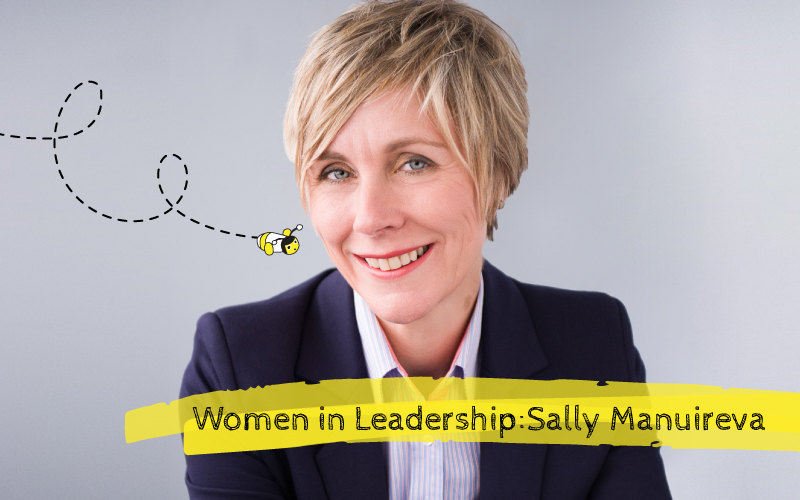Welcome to the latest edition of the Beyond Recruitment Women in Leadership series. I recently had the pleasure of speaking to Sally Manuireva, an experienced leader in the Arts & Culture sector. Sally has more than 20 years of international leadership experience in the arts and culture sector, and launched her own consultancy company in May 2017. Prior to that, Sally was Director Public Experience at Auckland War Memorial Museum. This was preceded by leadership positions in the UK, driving transformation of customer experiences. Sally currently holds governance roles in tertiary and cultural organisations, and is proud to have initiated an Auckland based leadership network for women in the cultural sector alongside a colleague.
Arts & Culture is a vibrant, growing sector in New Zealand, as evidenced for example by increases in participation and international success (Creative New Zealand, Annual Report 2016). The sector, which includes a wide range of museums, galleries, heritage, visual and performing arts, contributes positively to the education and well-being of New Zealanders, as well as tourism. Leading an organisation in this sector can be a more complex task than you might initially imagine, a point that Sally reflected on when I spoke to her, along with her belief in the importance of diversity and young people for the future leadership. To find out more about Sally’s leadership journey, and what she believes is key to the future of leadership, read on below.
Liza Viz: What has been the hardest challenge you’ve faced during your leadership journey?
Sally Manuireva: Early in my career, I found that being a leader in the Arts & Culture sector came with very unique challenges. Public sector organisations have complicated intricacies that often surprise those who work within them. Take a museum, for example. They are complex businesses, where public accountability is mixed with imperatives to generate revenue, which is meshed with creative challenges of producing rich content and unique customer experiences, whilst navigating the external forces of digital disruption, legislation and globalisation. I could go on. As a result, to thrive as a young leader in arts and culture sector, I had to become more flexible, adaptable, and entrepreneurial.
LV: What do you believe are the most important characteristics of a leader?
SM: Respect, empathy and authenticity. I believe that there is no substitute for being respectful and empathetic with others. It doesn't stop you having hard conversations or being decisive when you need to be; in fact, it makes it easier in my view. It encourages reactive, values-based leadership.
Operating around your values is vital for authentic leadership. I had a formative work experience when I was in my 20s, which involved dealing with a culture and practice of bullying. Although I was inexperienced, I instinctively knew it was wrong. With the support of my parents (my mentors) I challenged the bullies and this resulted in a new type of behaviour. At the time, I was unaware that this was authentic, values-based leadership. I’ve subsequently drawn on this experience when facing challenging situations.
LV: What do you believe the future will hold for leadership?
SM: As more young people come into the workforce and create new ways of working – collaboration, digital tools, greater fluidity in roles – I believe will see the traditional forms of leadership challenged in the near-future, and I welcome this shift.
Diversity and young people are two things that I am really passionate about. I love to see organisations strive towards achieving diversity amongst their people, as the leadership of the future needs a variety of perspectives, abilities, ages and cultures. Looking ahead, I'm committed to promoting diversity and inclusion. The arts and culture sector is the perfect arena for championing these areas.
LV: After everything you’ve learned, what would you tell your younger self?
SM: Having worked in the creative sector for more than twenty years, I have been fortunate to have a wide range of people influencing my leadership journey. As a result, I have learned the value of coaching and mentoring. With that in mind, I would have told my younger self to be more open to advice and guidance and to ask more questions. Thankfully, I did listen to my Mum when she suggested a job in the arts. In setting up my own company, many people have been generous in providing advice.
I would also have told my younger self that leadership responsibility is bestowed upon you by those you are seeking to lead. It does not matter what your title is - if you haven't earned respect, you'll never be their true leader. In my experience, you earn that respect by building relationships and being respectful.
Finally, I would have told my younger self that taking charge of your career is vital. I would have said, “it's your career - own it.” Seek out leadership opportunities and learn from them, especially the ones that don't go that smoothly. I believe that it is vital to remain curious and to seek opportunities for development. In my case, setting up my own company is a classic example of taking charge of my career and challenging myself.
My former colleague described me as ‘a charming Yorkshire lass with a spine of steel’. I think that is fair – gracious and resilient, and both traits are essential in leadership positions. I do wonder sometimes if I should be less charming and more a woman of steel, but then I wouldn't be me, so here's to finding your own leadership style and being your best self!
With Thanks
I would like to take the time thank Sally for sharing her leadership journey and taking part in our Women in Leadership series, her learnings provide some valuable lessons and insights for all of us.
Watch this space for the next edition of the Women in Leadership blog series, and if you have a great story you’d like to share, then feel free to get in touch.



.png)

